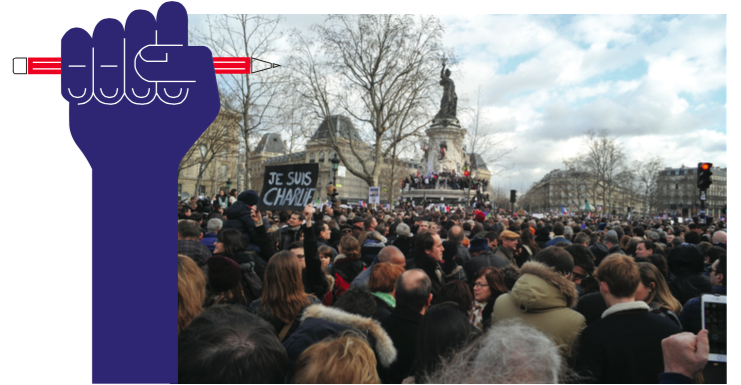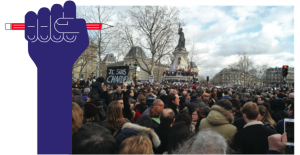More restrictions than you might think in the land of liberté
Free speech has almost always resulted in the tough question of whether or not it should (paradoxically) have limits placed on it. My stance in such a debate is that of the “Ney!” crowd, but that position does come with its problems, and I would be very naive in claiming otherwise. It’s very difficult, for instance, to feel fully comfortable with the realization that someone who engages in racist, xenophobic, homophobic, or sexist forms of expression is entitled to do so given his or her right to free speech. Indeed, being able to stomach this realization can be a dilemma, because it opens the door to a large number of people whose sole purpose is seemingly to degrade another human being’s quality of life, and drastically so.
As I see it,the best way to counter hateful currents is for the public to engage in protest and debate. After all, freedom of speech is not freedom from criticism. Yet, for many, this isn’t sufficient. That is why legislators find it easy to exploit one’s discomfort with hateful trends, especially as they jump on the wagon of speech-banning laws. Some forms of these laws are quite understandable, and the vast majority usually try to define hateful (or hate) speech and differentiate it as its own kind of act, and as an exception to the rule — either partially or completely. In the United States, for example, the writers of the U.S. Constitution – according to Supreme Court Justices Frank Murphy and Antonin Scalia – did set an edge on free speech, separating speech from other forms of expression that, in and of their own, are seen as an “imminent act of violence” – whatever that means.
Now, in the case of France, the limitation does not only exclude speech that is an immediate act of violence in and of itself, but also expressions of dislike or resentment to an entire demographic. French law, to be more explicit, prohibits a person, as one translation puts it, from “provok[ing] discrimination, hatred, or violence toward a person or group of persons because of their origin or belonging to a particular ethnicity, nation, race, or religion.” Yet, while placing this as the French limit to free speech, the French government’s implementation of those rules is indeed very selective.
Case in point, last summer, France banned all pro-Palestinian protests. People defying the ban were to pay 15,000 euros — 45,000 euros if they cover their faces — not to mention facing prison time. The ban, as I understand it, still stands. In contrast, a pro-Israeli rally held almost two weeks after the ban was announced was provided with security, calling into question the French government’s claim that the ban was a mere assurance of safety and peace.
France also introduced a law in 2010 which effectively and intentionally banned certain forms of religious attire (a form of expression) worn by many religious Muslim women living in France – hence forcing them to choose between being devout followers of their faith, or active members of the community.
These kinds of exceptions to freedom of expression (including religious expression) mostly target minority opinions, as well as minority groups. It limits “their” freedom of speech when it contradicts “ours.” Moreover, it acts as a manifestation of a wide-spread problem in France where the Other is arrogantly seen as someone that needs fixing and enlightening, and as an abnormal phenomena.
While exceptions to free speech are placed against the views of the minorities in France, other exceptions are placed for the protection of the powerful. Let’s not forget for instance that until 2013, France maintained laws forbidding insults directed at the French head of state. In fact, Nicolas Sarkozy, the former French President, famously charged a protester in 2008 for offending him, after the protester used an insult that Sarkozy himself previously hurled at an individual refusing to shake his hand.
France’s exceptions don’t stop there. There are also laws regulating what one can and can’t say about history. Holocaust denial for instance, false and disgusting as it is, is not allowed in France, and there’s a similar effort being made towards denial of the Armenian Genocide. Of course, Holocaust and Armenian Genocide denials are factually incorrect and are immoral to a large degree. But believing something that is untrue or disgusting, while it should always be protested against by the public, shouldn’t be illegal in a state that proclaims itself a protector of free speech.
There is no doubt that France provides greater space for individuals to express themselves than other countries like Saudi Arabia or Egypt (both close allies of France, Canada, and the United States, by the way). But that’s not a very high standard to surpass. French law still punishes people for going against what is conventional – be that verbally or otherwise. And despite this applying to many other countries claiming similar honors, it is still very difficult for one to read the torrent of hashtags and Facebook posts romanticizing France and other European and North American countries without also sensing the arrogance gushing out of the screen.



Recent Comments